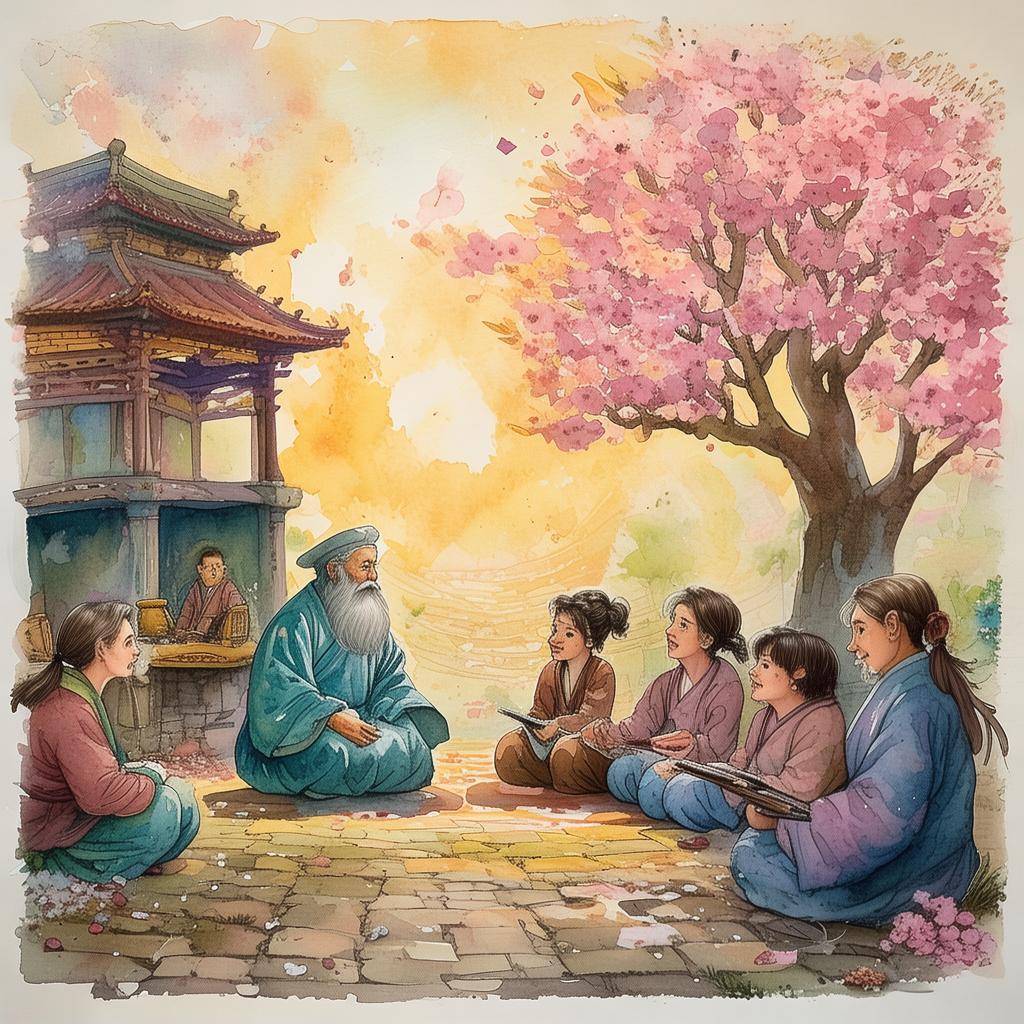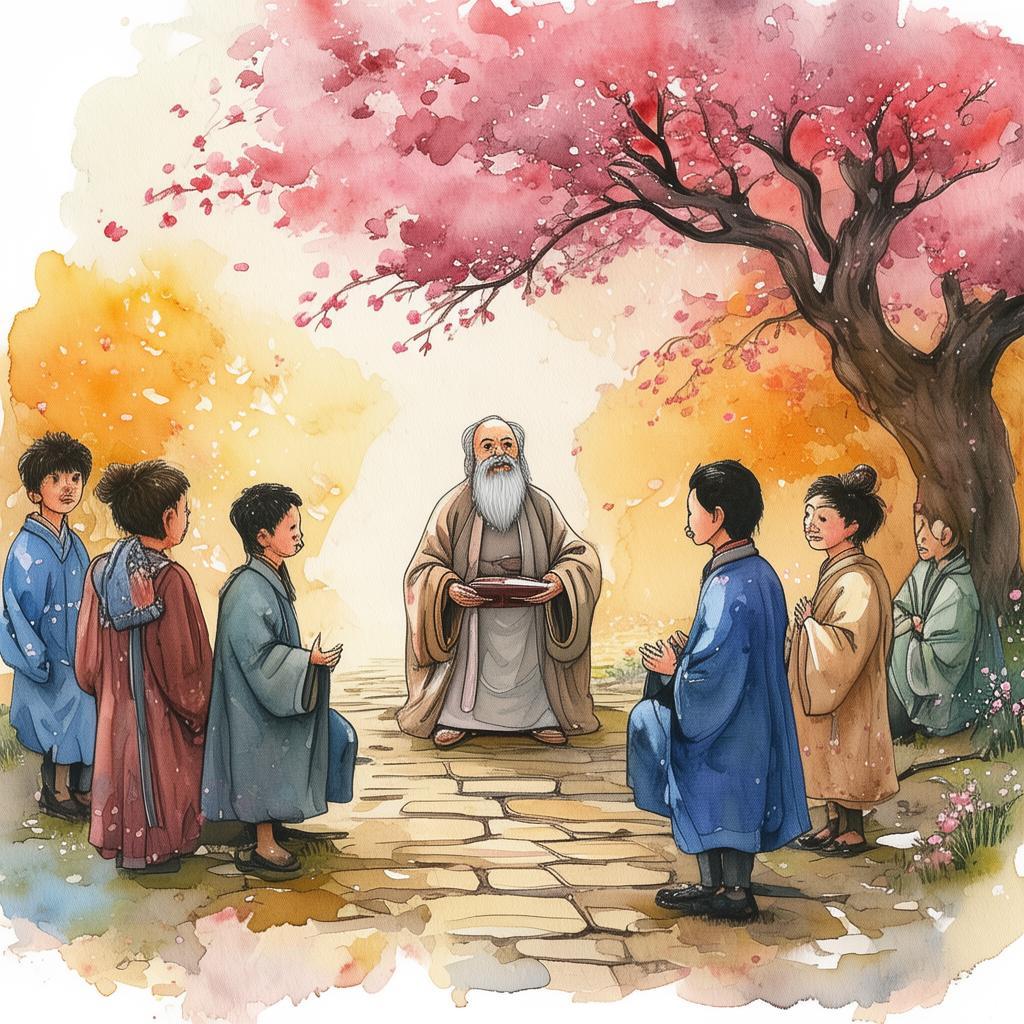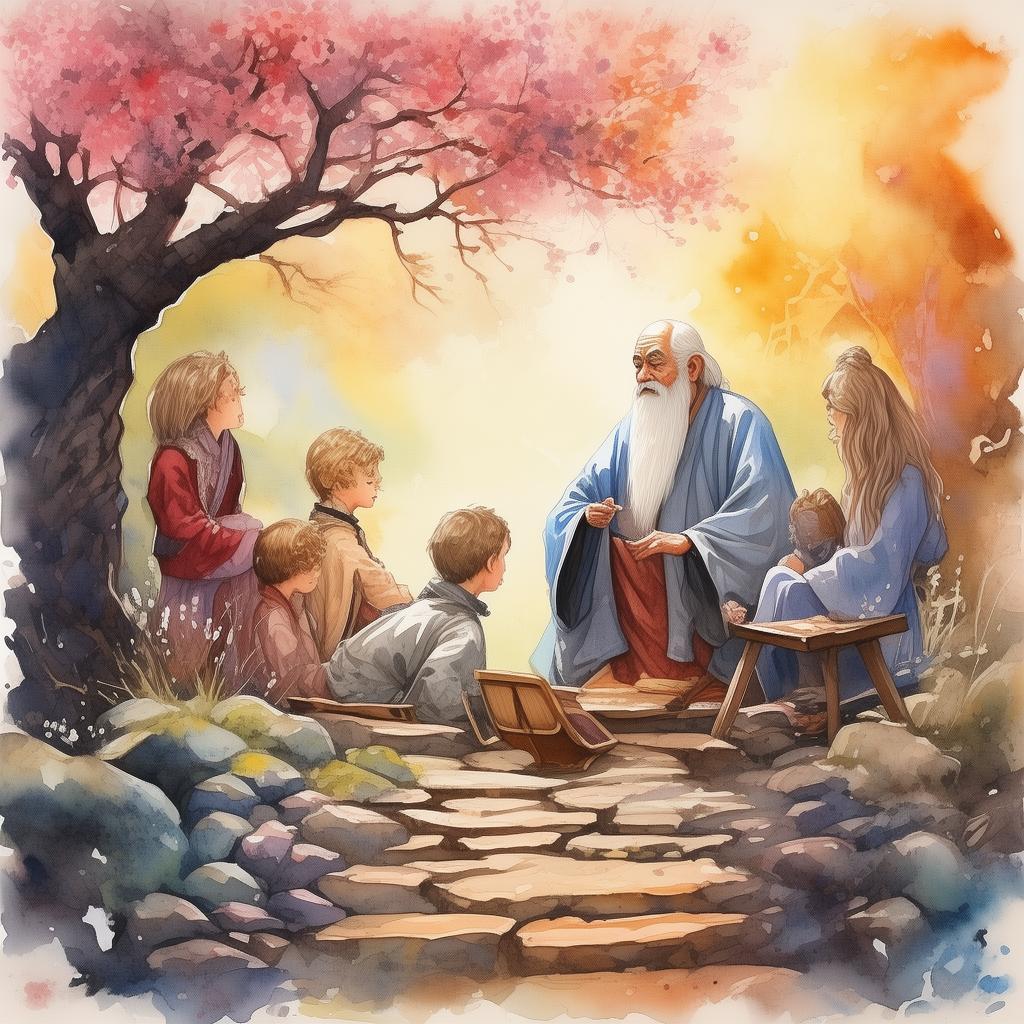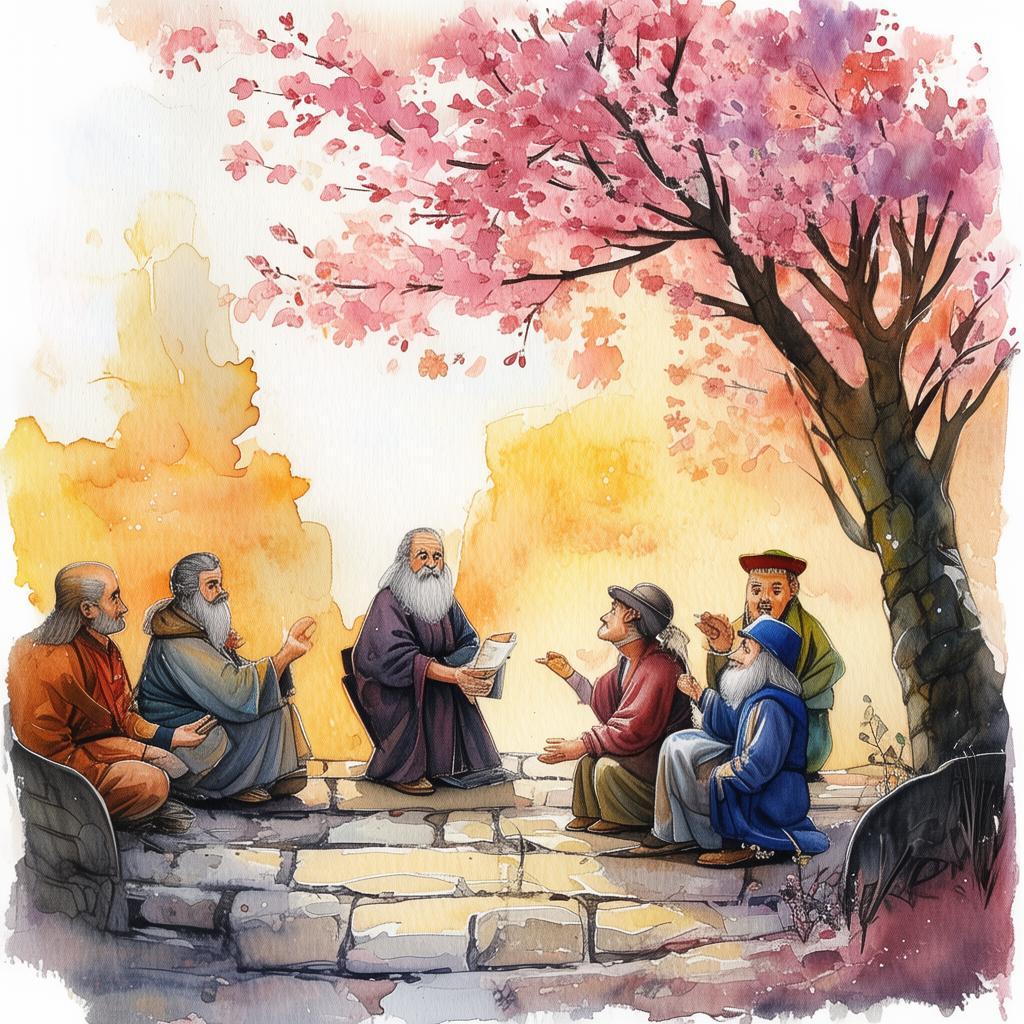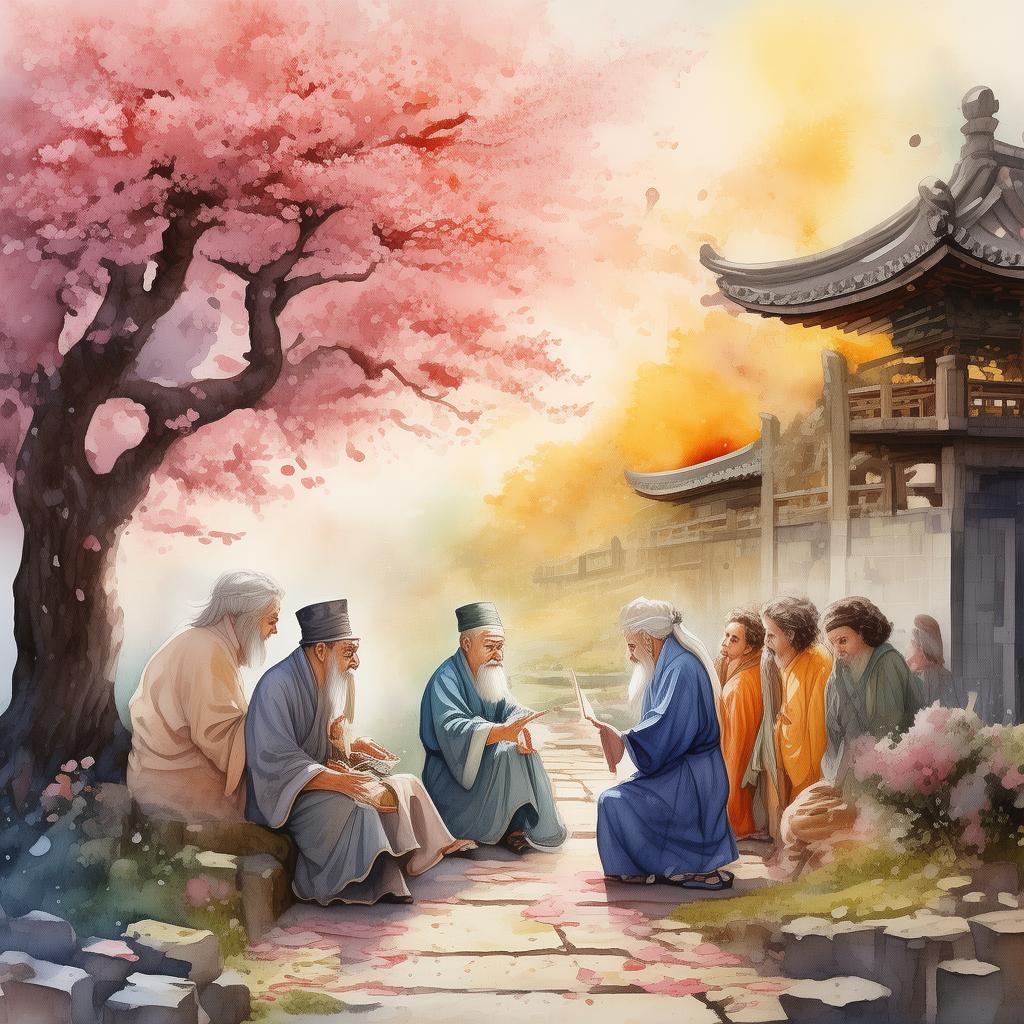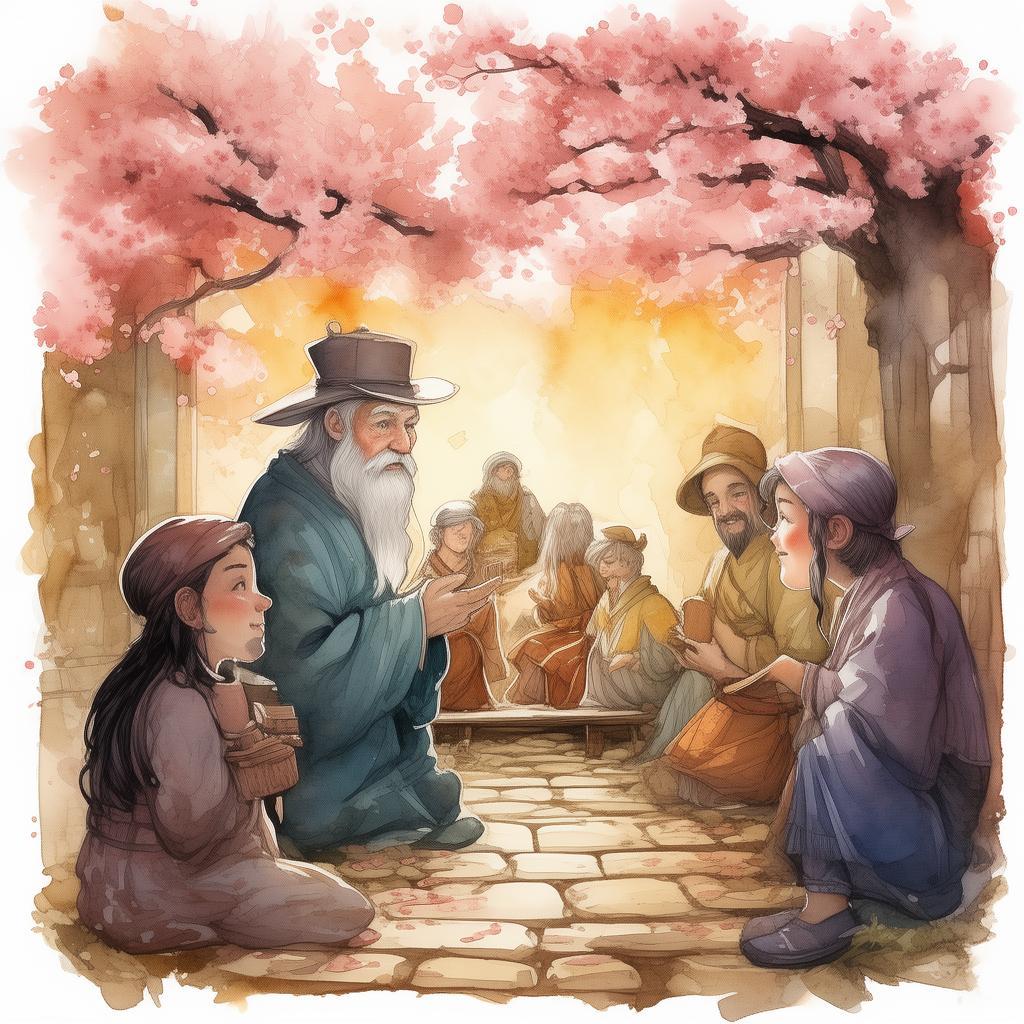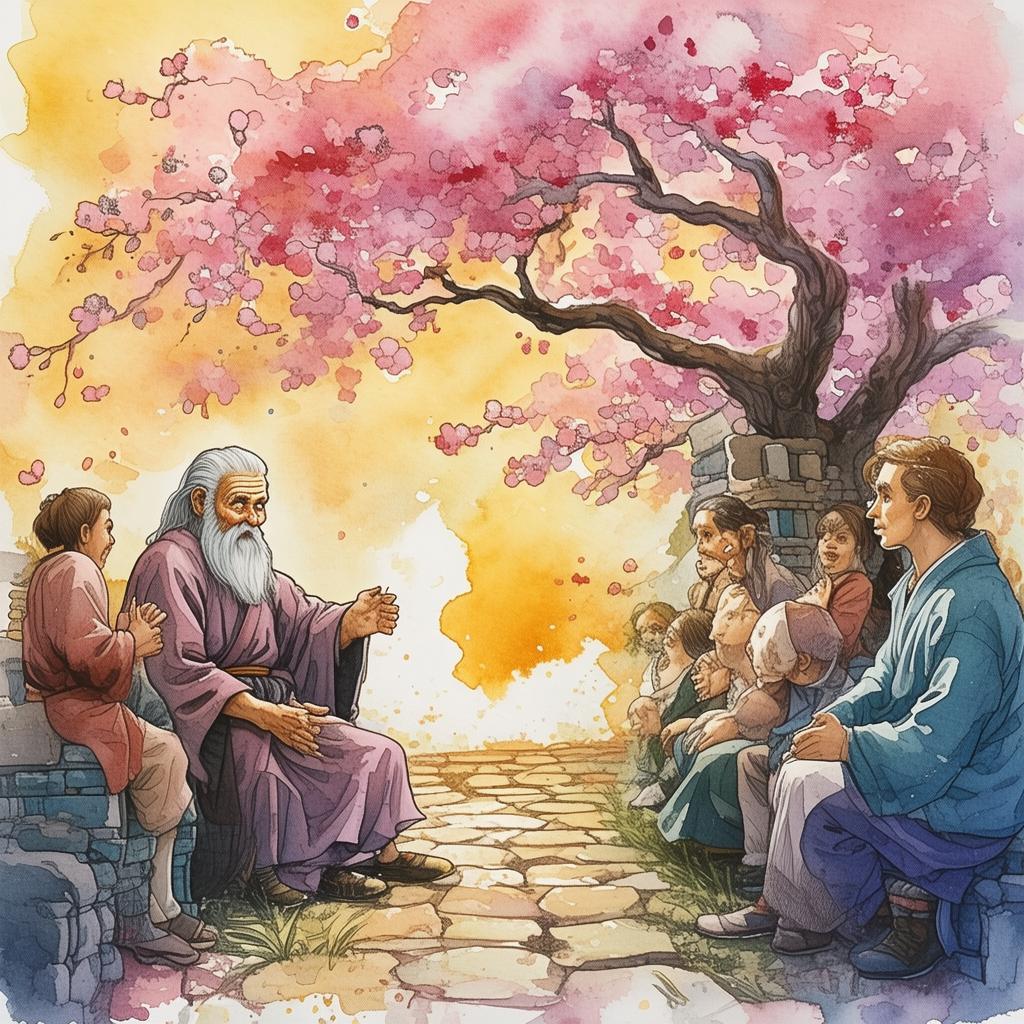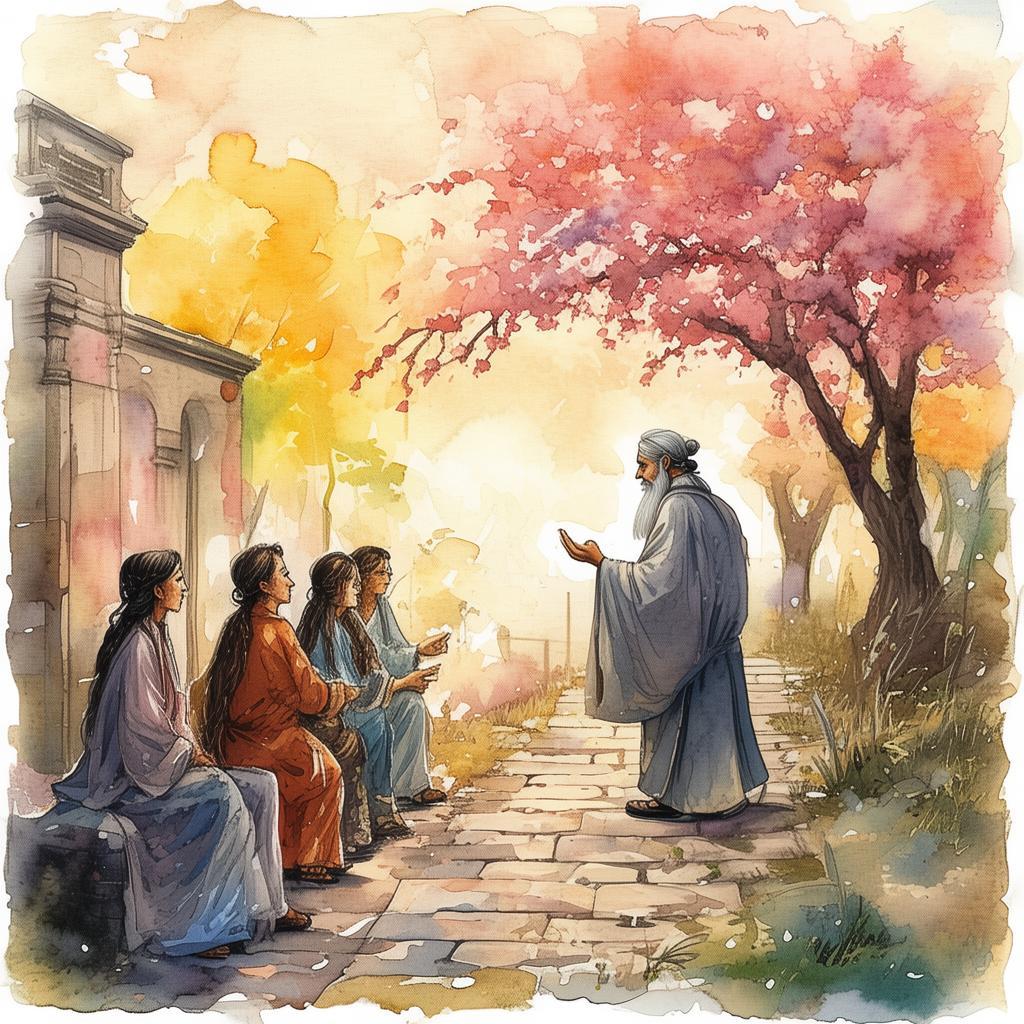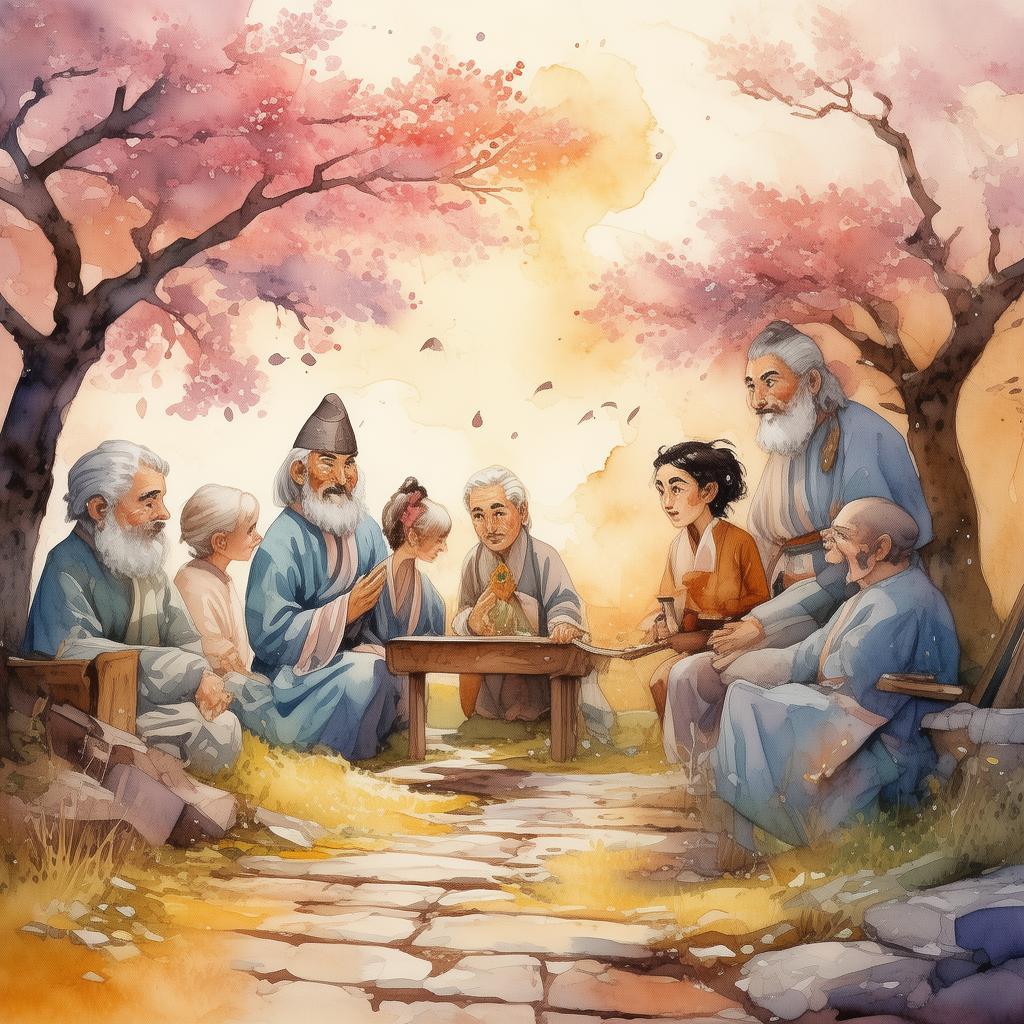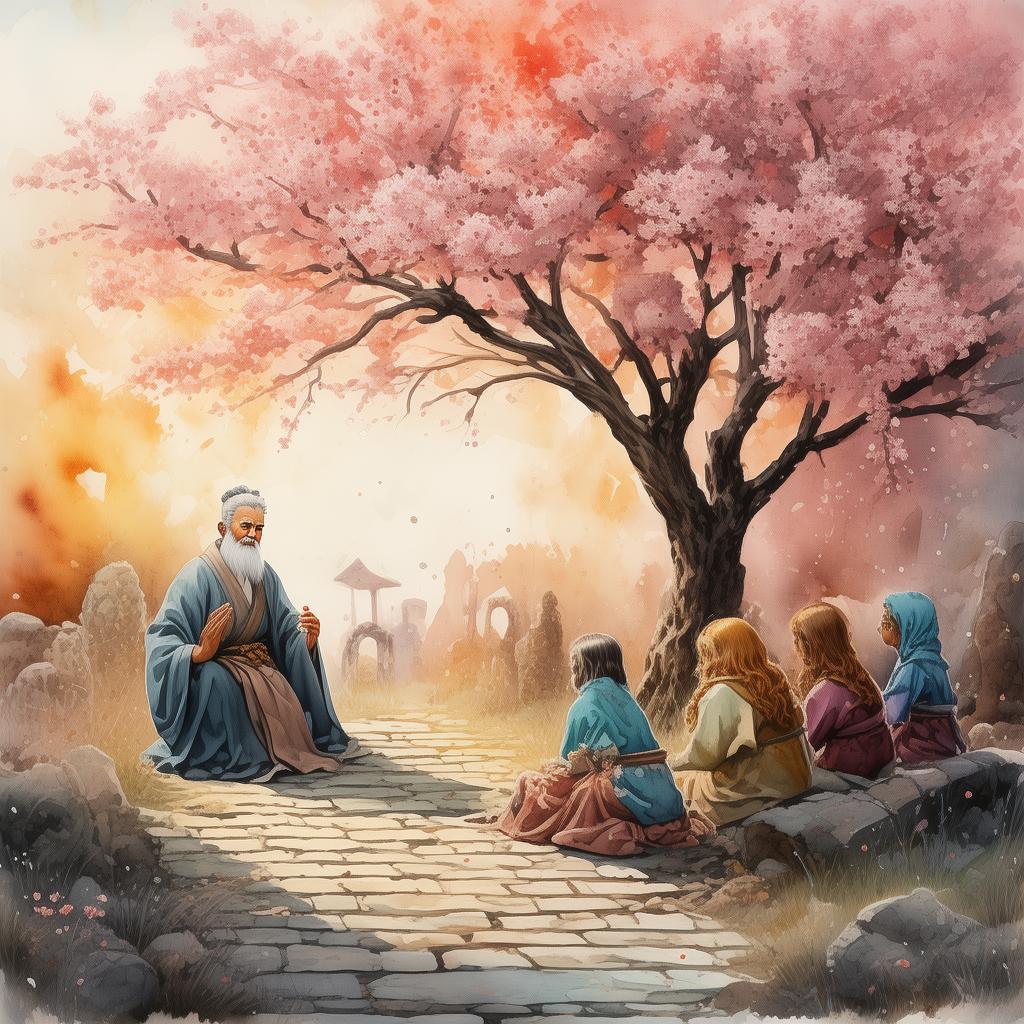Defiance in the Zenith: The Monk's Rebellion
In the serene mountains of ancient China, there lived a monk named Ch'an, whose life was dedicated to the pursuit of enlightenment. Ch'an was a man of great discipline, his every action and thought imbued with the principles of Zen. Yet, as he meditated under the whispering pines and chanted the ancient sutras, a restlessness began to stir within him.
The Zen tradition, as it was then, was steeped in the moral order, a strict adherence to the teachings of the Buddha and the monastic code. The monks lived in harmony, their lives governed by the Five Precepts: not to kill, not to steal, not to lie, not to engage in sexual misconduct, and not to take intoxicants. Ch'an, however, found himself at odds with this order.
He saw the world around him, a world of suffering and inequality, and he felt that the moral order of the Zen tradition was too rigid to address the true nature of human existence. He believed that the path to enlightenment should not be confined to the monastic walls but should extend into the world, touching the lives of those who were not fortunate enough to retreat to the mountains.
One day, as he sat in meditation, a thought struck him like lightning. "What if the moral order itself was a barrier to true enlightenment?" he pondered. He realized that the Five Precepts, while noble in intention, could also be a source of division and suffering. He saw monks who were too strict with themselves and others, who were more concerned with their own purity than with the welfare of others.
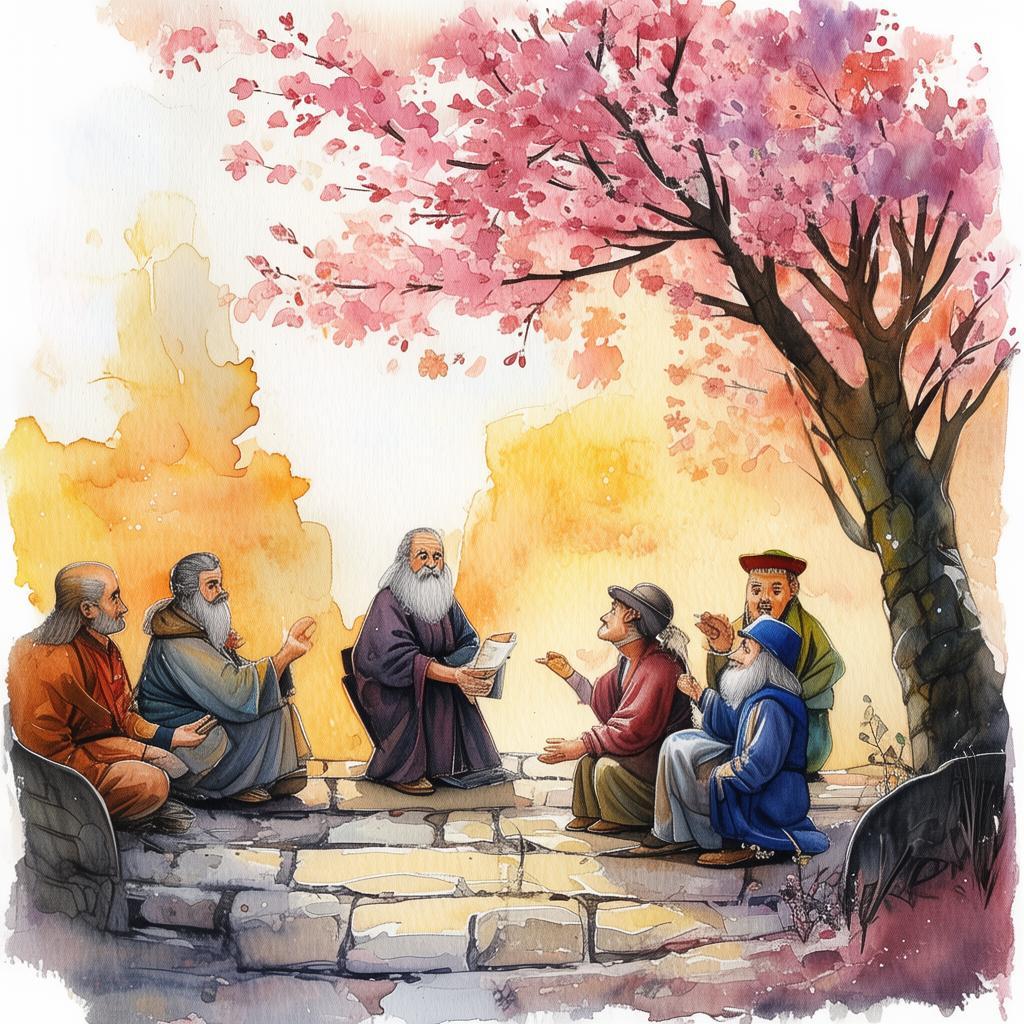
Ch'an decided to defy the moral order. He began to speak openly about his beliefs, challenging the established teachings of Zen. He argued that the path to enlightenment was not about adhering to rules but about understanding the true nature of reality, which was beyond the constraints of the moral order.
His defiance did not go unnoticed. The other monks were scandalized. "How can you question the teachings of the Buddha?" they asked. "You are a monk, and monks must follow the moral order!"
But Ch'an was resolute. He believed that the true spirit of Zen was about compassion and understanding, not about the letter of the law. He began to live his life differently, acting with kindness and compassion towards all, regardless of their adherence to the moral order.
As he walked through the village, his presence was a stark contrast to the usual monk. He helped the sick, fed the poor, and comforted the sorrowful. His actions spread like wildfire, and soon, people began to follow him, drawn by his genuine compassion and wisdom.
The leaders of the Zen tradition were aghast. They saw Ch'an's actions as a threat to the very fabric of their order. They tried to expel him from the monastery, but Ch'an would not be swayed. "I must follow the path of compassion," he declared. "The moral order is a tool, not a goal."
The climax of Ch'an's defiance came when he was summoned before the highest council of Zen masters. They confronted him, their faces flushed with anger. "You have defiled the sacred teachings of Zen!" they shouted.
Ch'an stood calmly, his eyes serene. "I have not defiled the teachings," he replied. "I have sought to purify them, to remove the barriers that prevent true enlightenment."
The council was divided. Some were appalled by his defiance, while others saw the truth in his words. In the end, the council decided to banish Ch'an from the Zen tradition, but he remained undeterred.
Ch'an's journey took him far from the mountains, into the bustling cities and remote villages of China. He continued to spread his message of compassion and understanding, challenging the moral order at every turn. His teachings began to take root, and a new branch of Zen philosophy emerged, one that emphasized the importance of compassion and the interconnectedness of all beings.
Years passed, and Ch'an's teachings spread far and wide. He became known as the Monk Who Defied the Moral Order, a title that would resonate through the ages. His legacy was not just in the words he spoke or the actions he took, but in the profound transformation he brought about within the Zen tradition itself.
In the end, Ch'an returned to the mountains, not as a monk, but as a teacher. He continued to meditate, to teach, and to live his life with the same compassion and wisdom that had guided him all those years ago. And though he had defied the moral order, he had also found a new path, one that would lead to enlightenment for many who followed in his footsteps.
The Zen tradition, once rigid and unyielding, began to embrace the spirit of Ch'an's teachings. The moral order, while still important, was no longer the end goal. Instead, it became a tool to help practitioners on their path to enlightenment, a reminder of the importance of compassion and understanding.
And so, the story of Ch'an, the Monk Who Defied the Moral Order, became a testament to the power of individuality, the courage to challenge the status quo, and the endless pursuit of truth. His legacy would live on, a beacon of light in the Zen tradition, reminding all who followed that the path to enlightenment is not about rules, but about the heart.
✨ Original Statement ✨
All articles published on this website (including but not limited to text, images, videos, and other content) are original or authorized for reposting and are protected by relevant laws. Without the explicit written permission of this website, no individual or organization may copy, modify, repost, or use the content for commercial purposes.
If you need to quote or cooperate, please contact this site for authorization. We reserve the right to pursue legal responsibility for any unauthorized use.
Hereby declared.
